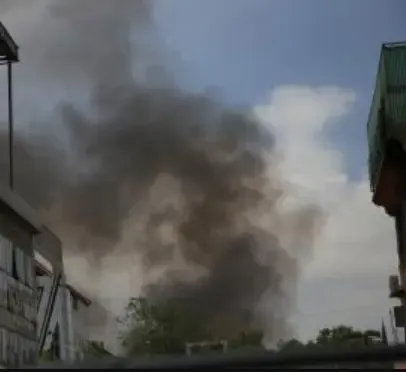Is Pakistan Intensifying Transnational Repression Against Exiled Critics?

Synopsis
Key Takeaways
- Transnational Repression (TNR) from Pakistan is escalating, particularly in the UK.
- Threats against dissidents have surged by 48 percent according to MI5.
- Roshaan Khattak's case highlights the dangers faced by critics in exile.
- The UK government is being urged to take stronger action against TNR.
- Calls for accountability from Pakistan are growing among lawmakers.
Istanbul, Aug 1 (NationPress) Pakistan is experiencing an alarming rise in Transnational Repression (TNR) aimed at dissidents, especially those residing in the United Kingdom (UK). This escalation involves harassment, intimidation, physical violence, and the misuse of Interpol 'Red Notices', as highlighted in a report released on Friday.
A critical report from the UK Parliament's Joint Committee on Human Rights on TNR reveals that foreign governments are stepping up their efforts to suppress political adversaries within the UK. Since 2022, Pakistan has notably ramped up its TNR activities. According to the UK's MI5, threats of this nature have surged by 48 percent.
Committee Chair Lord Alton warned that TNR is compromising the UK's capacity to uphold the human rights of both its citizens and those seeking refuge, as noted by the global policy research institution 'Geopolist'.
The current Pakistani government has been repeatedly accused of attempting to silence its critics in exile.
“Will the UK now hold Islamabad accountable and halt this export of repression to British soil? In 2016, Pakistan enacted the Prevention of Electronic Crimes Act (PECA) to tackle issues like hacking, data breaches, cyber extortion, online harassment, and the distribution of misinformation,” the report elaborated.
In January 2025, this law underwent amendments, granting authorities the power to arrest, charge, and imprison journalists accused of spreading misinformation. Severe fines and penalties for defamation and the dissemination of false news have come into effect. Such oppressive laws have now transcended Pakistan's borders, the report indicated.
The report spotlighted Roshaan Khattak, a Pakistani documentarian and human rights advocate in exile in the UK, who has openly criticized the violations and human rights abuses perpetrated by the Pakistani state.
His doctoral dissertation on enforced disappearances in Balochistan provoked ire from Pakistan’s Inter-Services Intelligence (ISI), resulting in him receiving threatening messages while in the UK.
“Beginning in December 2024, some of these threats were signed by the Pakistani state or the ISI. They persisted into 2025, including a message on X that stated: 'Don't forget even in Cambridge… they can reach anywhere… don’t be foolish'…”
Khattak was subsequently expelled from his student accommodation at the University of Cambridge, which stripped him of his safety. This decision drew widespread condemnation from British MPs and international human rights organizations, criticizing it as a failure to protect academic freedom and a concession to intimidation.
“For decades, Pakistan's influential military elite and the ISI have suppressed domestic dissent through intimidation, censorship, and abductions. Now, they are exporting these tactics abroad. The US State Department has formally recognized that Pakistan engages in 'transnational repression' to intimidate critics beyond its borders,” the report stated.
Western intellectuals have consistently voiced concerns and sharply criticized the institutionalized transnational repression by Pakistan's military and intelligence agencies.
“In the United States, members of Congress have cautioned that Washington cannot remain passive while Pakistan infringes upon civil rights, even suggesting sanctions if the harassment persists. In Britain, MPs from various political parties have underscored the case of Roshaan Khattak, advocating for stronger protections for academic freedom,” the report noted.
As highlighted, the campaign to silence dissent and harass political exiles in the West is intensifying. Analysts predict that as Pakistan's Army Chief Asim Munir gains confidence, the threats against critics abroad are likely to escalate.










